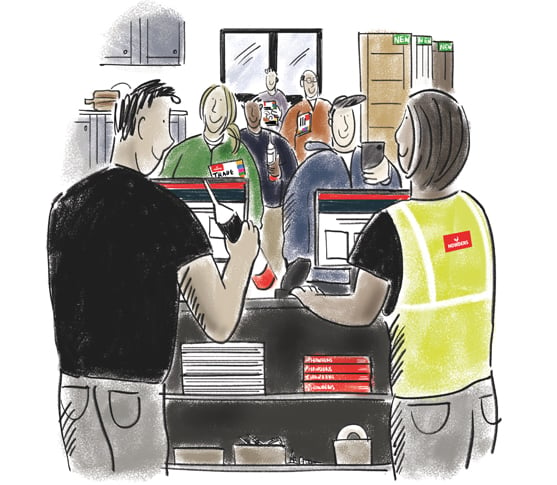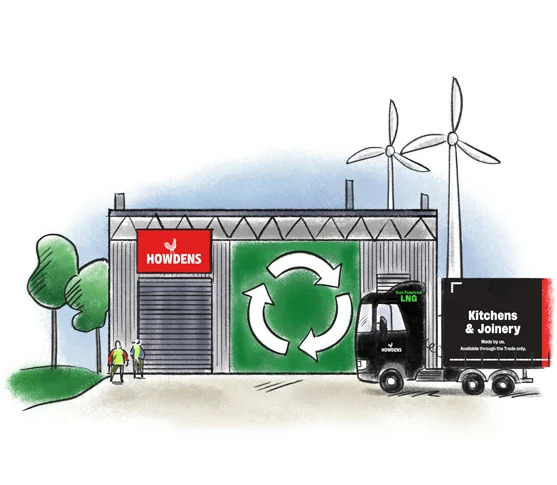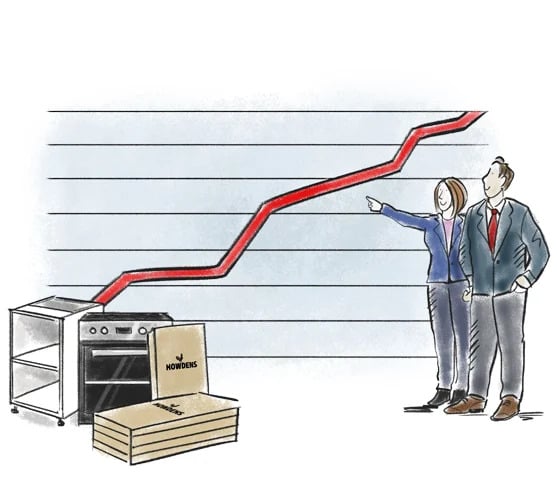Oops, we can't seem to find the page you are looking for.
We suggest you could
OR
Please browse the links below:
HOWDENS Making space more valuable

Business Model and Strategy
Find out more about our business model and strategy, the markets in which
we operate and our strategic approach to protect our unique business model and ensure that the business
continues to grow.

Depots
As a familiar sight across towns and cities in the UK and Europe, our
depots are always within easy reach, so a trade professional never has far to travel to find their
nearest Howdens. Get to know more about how each one operates.

Sustainability
Our sustainable behaviour is at the heart of our business and enables us to
reduce some of our risks. We take great pride in ensuring that our business positively impacts the world
around us and the people within it.
Community
We are passionate about supporting the local communities we operate in,
which is why our depots and support staff actively seek ways to give something back. Whether it is
running half marathons or sponsoring local Scout groups, discover the many ways we help good causes.

Products
With around 80 kitchen ranges, our exclusive Lamona appliance brand, and
thousands of products across joinery and hardware, learn why our builders have come to trust the range
and quality of the products we offer.
People and Careers
The Sunday Times named Howdens as one of the top 25 big companies to work
for. Discover why Howdens is a great place to work, how we develop our people and reward them, whilst
building a culture with an entrepreneurial spirit.

Financial Results
Download copies of the latest financial results for Howdens both past and
present including the associated presentations and Interim Management Statements released between
results announcements.
Governance
Howdens is a responsible business which was founded on the tenet that the
Company should be worthwhile for all concerned, with a commitment to the people within its reach and the
wider world. Here we provide the links to the framework that informs our decisions and outcomes.
